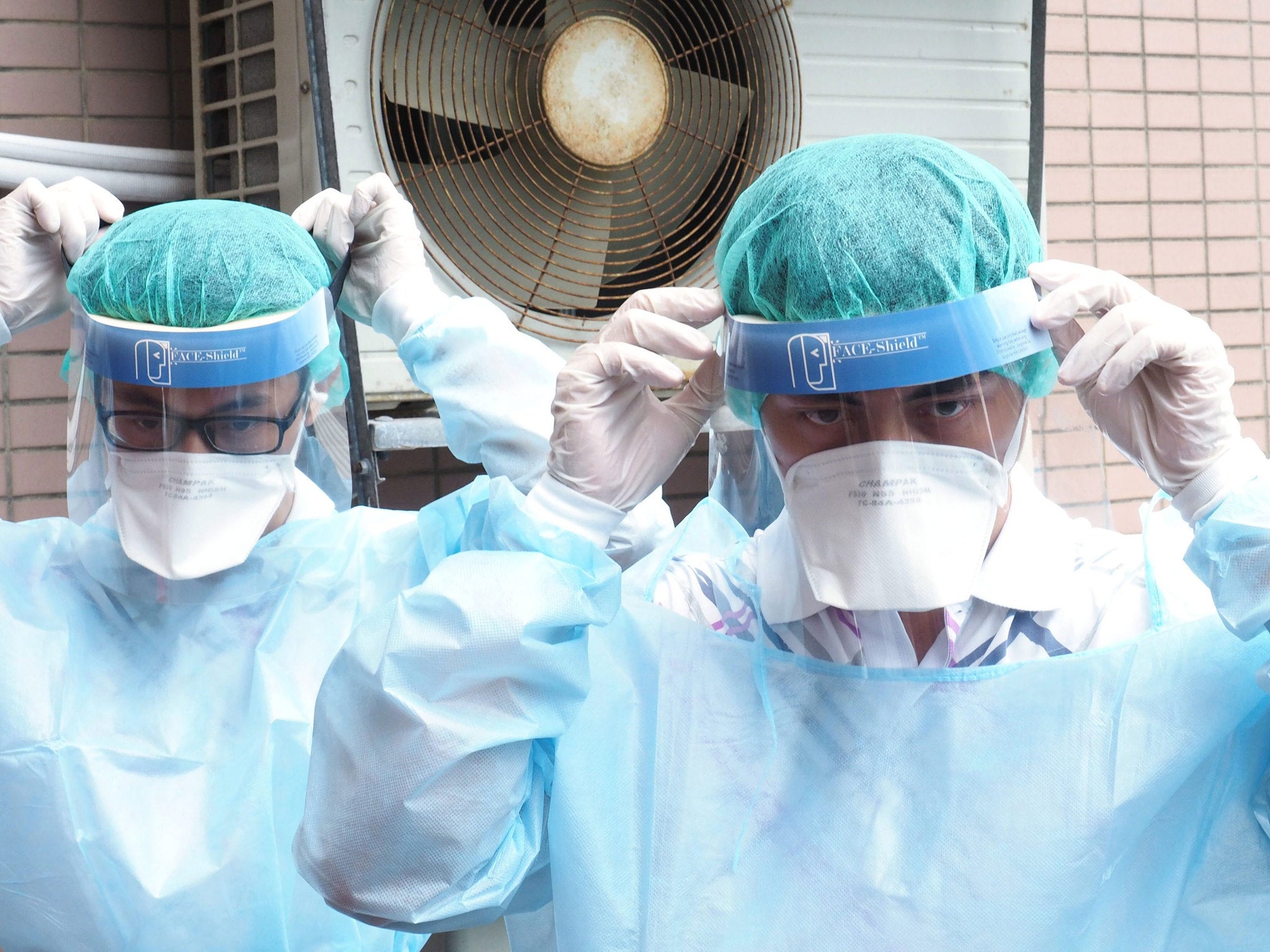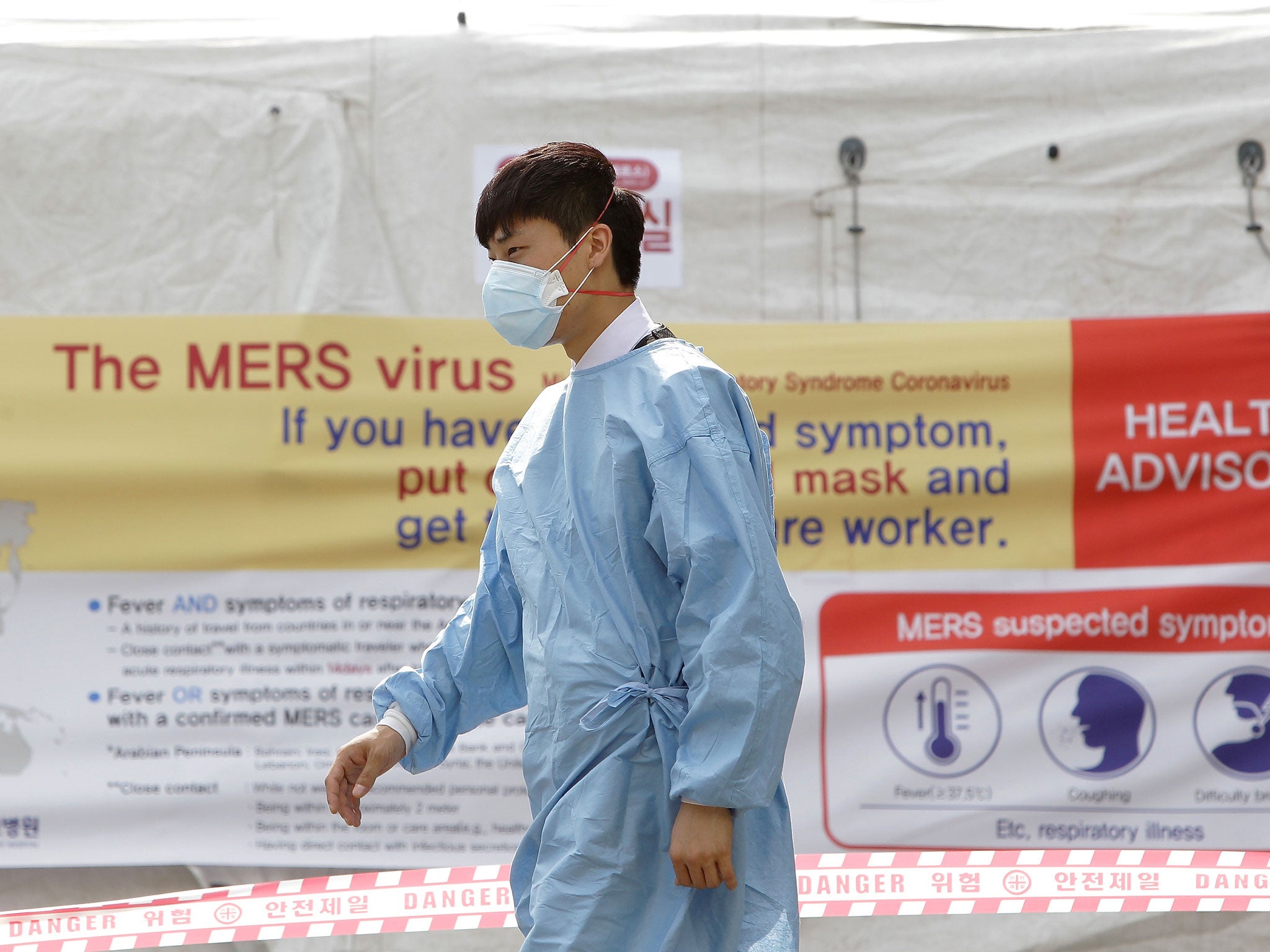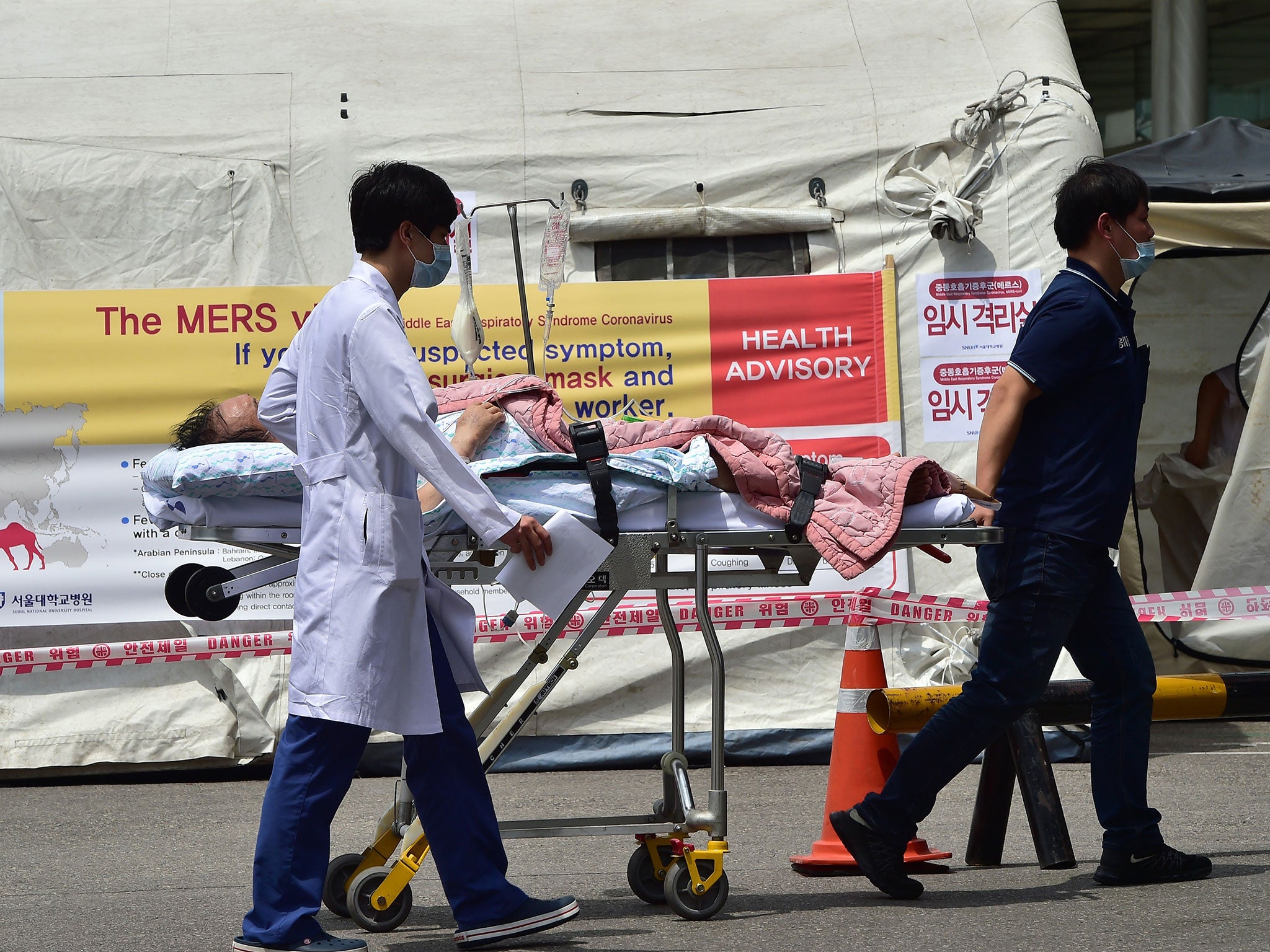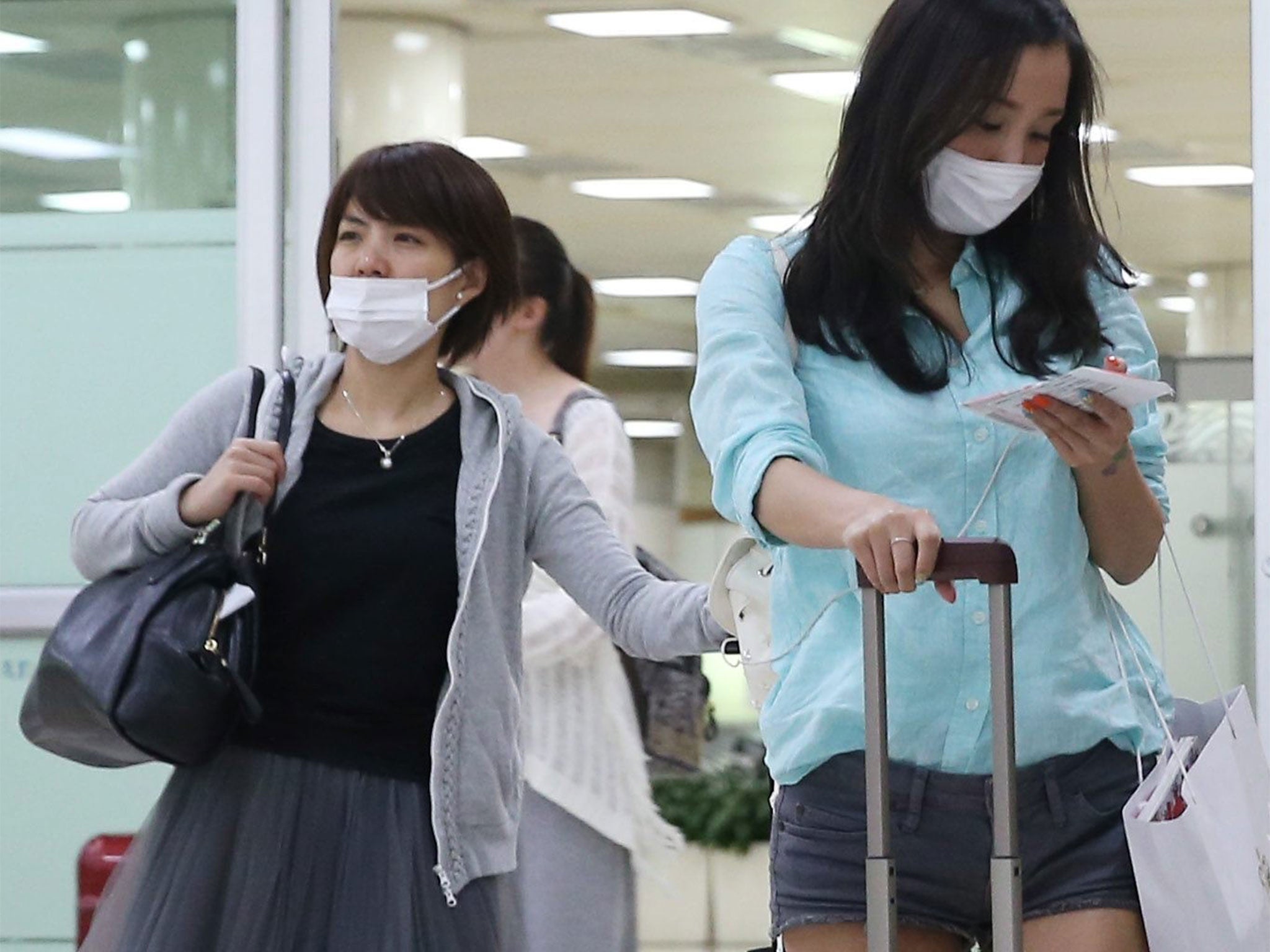Mers virus: South Korea closes hundreds of schools over fears deadly virus may spread
MERS has a much higher death rate than SARS – and there is no cure or vaccine

Your support helps us to tell the story
From reproductive rights to climate change to Big Tech, The Independent is on the ground when the story is developing. Whether it's investigating the financials of Elon Musk's pro-Trump PAC or producing our latest documentary, 'The A Word', which shines a light on the American women fighting for reproductive rights, we know how important it is to parse out the facts from the messaging.
At such a critical moment in US history, we need reporters on the ground. Your donation allows us to keep sending journalists to speak to both sides of the story.
The Independent is trusted by Americans across the entire political spectrum. And unlike many other quality news outlets, we choose not to lock Americans out of our reporting and analysis with paywalls. We believe quality journalism should be available to everyone, paid for by those who can afford it.
Your support makes all the difference.Hundreds of schools have been closed as South Korea moved to try and limit the spread of the potentially deadly Mers virus.
The health ministry confirmed five more cases of Middle East Respiratory Syndrome (Mers), bringing the total number of cases in the country to 30, amid fears that the disease appears to be spreading.
The Education Ministry said that 209 schools had been closed in four cities and provinces - many in the province of Gyonggi, near the capital Seoul.
"We have decided that schools need stronger preventive measures than the general society,” said Education Minister Rep. Hwang Woo-yea, according to local media.
Four had been in the same hospital as the first patient, a 68-year-old man who had recently travelled to four countries in the Middle East, Reuters reported.
Mers virus: What is it, what are the symptoms and where is it affected?
Chinese hospital staff 'hold ballot to decide who will treat patient'

The other, a 60-year-old man, caught it from another person infected in the outbreak.
On Tuesday, South Korea reported the first two deaths from the outbreak of Mers, an illness that is thought to originate in bats, and is passed on to humans by camels. It can trigger respiratory infections that can lead to pneumonia and kidney failure.
A 58-year-old woman who had contact with South Korea's first patient died of acute respiratory failure on Monday, the Health Ministry said, and a 71-year-old man with a history of kidney ailments also died.

While he was being treated, the man was exposed to a number of medical staff, patients, and hospital visitors.
“Given the number of clinics and hospitals that cared for the index case, further cases can be expected,” said the WHO in a statement.
South Korea, which now has the third highest number of cases after Saudi Arabia and United Arab Emirates, according to the European Centre for Disease Prevention and Control, has so far isolated about 750 people for possible infection.
The new cases bring the total number globally to 1,166, based on World Health Organization (WHO) data, and there have been at least 436 related deaths.

Mers is a relatively new disease, and was first identified in humans in Saudi Arabia in 2012. It is believed to be caused by a coronavirus from the same family as the one that triggered the deadly outbreak of Severe Acute Respiratory Syndrome (SARS) in 2003.
Yet Mers has a much higher death rate than SARS, and there is no cure or vaccine.
The WHO has not yet recommended trade or travel restrictions for South Korea, although South Korean border control authorities have put a ban on overseas travel for people isolated for possible infection, a health ministry official said.
Additional reporting by Reuters
Join our commenting forum
Join thought-provoking conversations, follow other Independent readers and see their replies
Comments